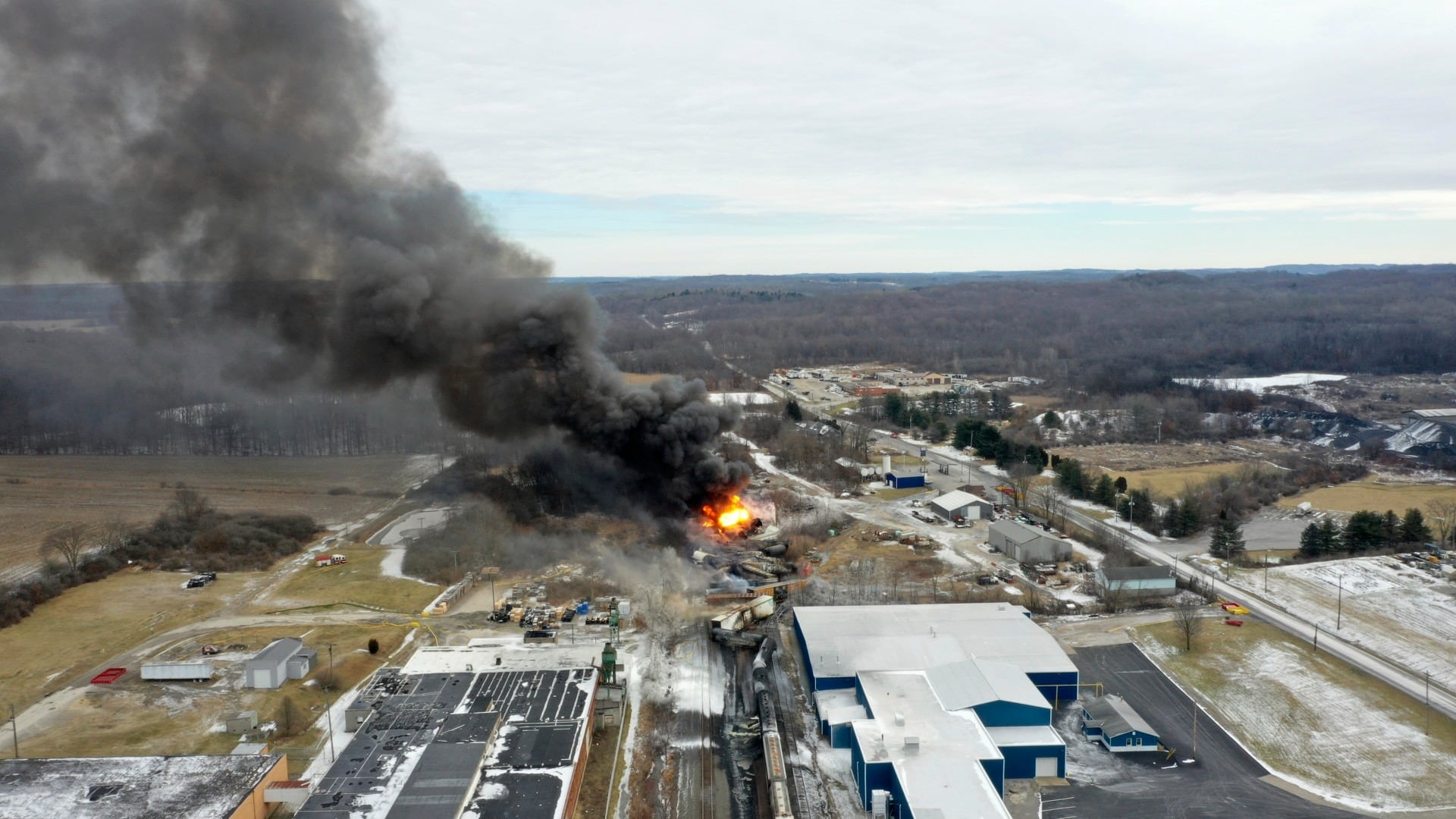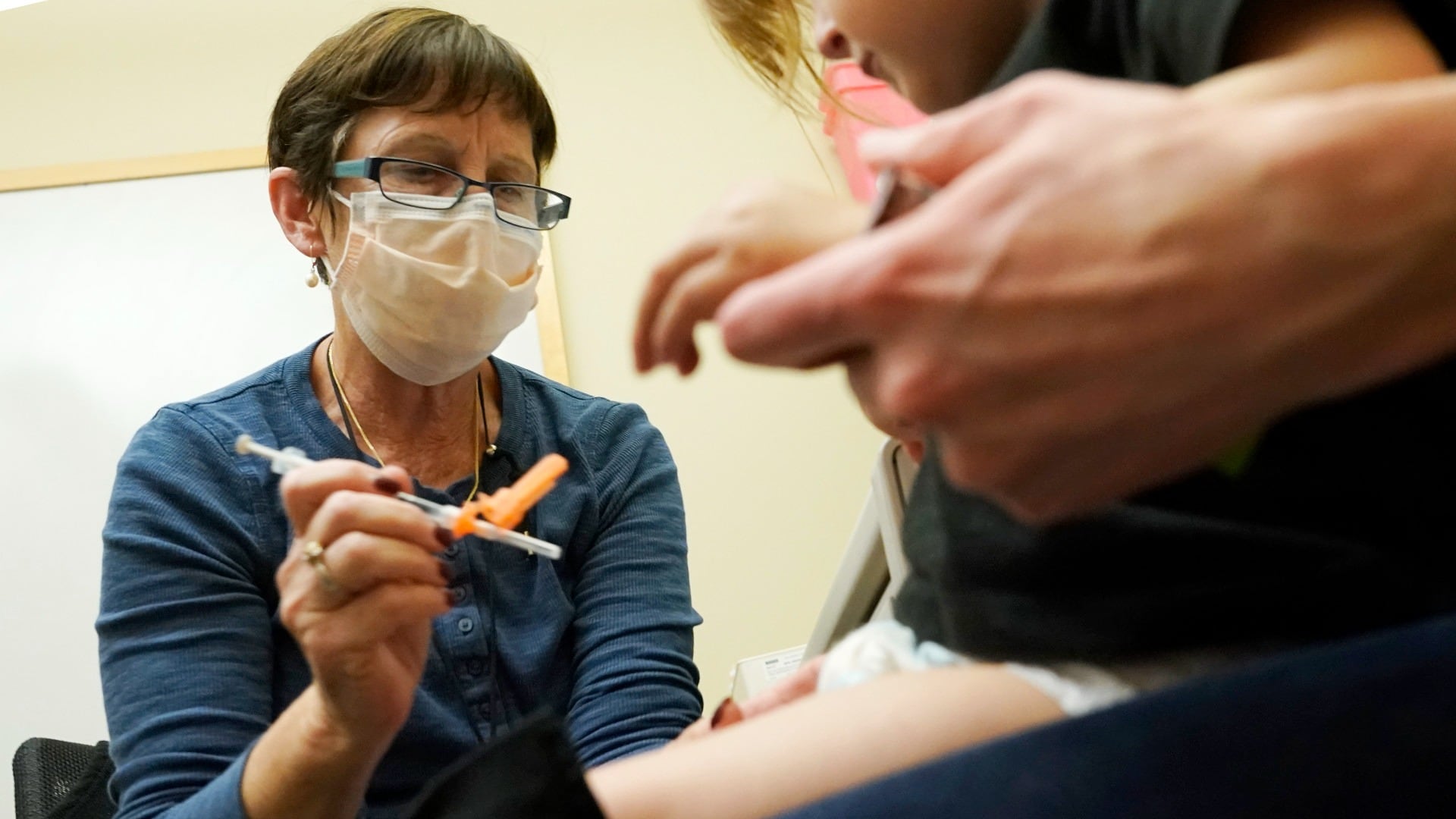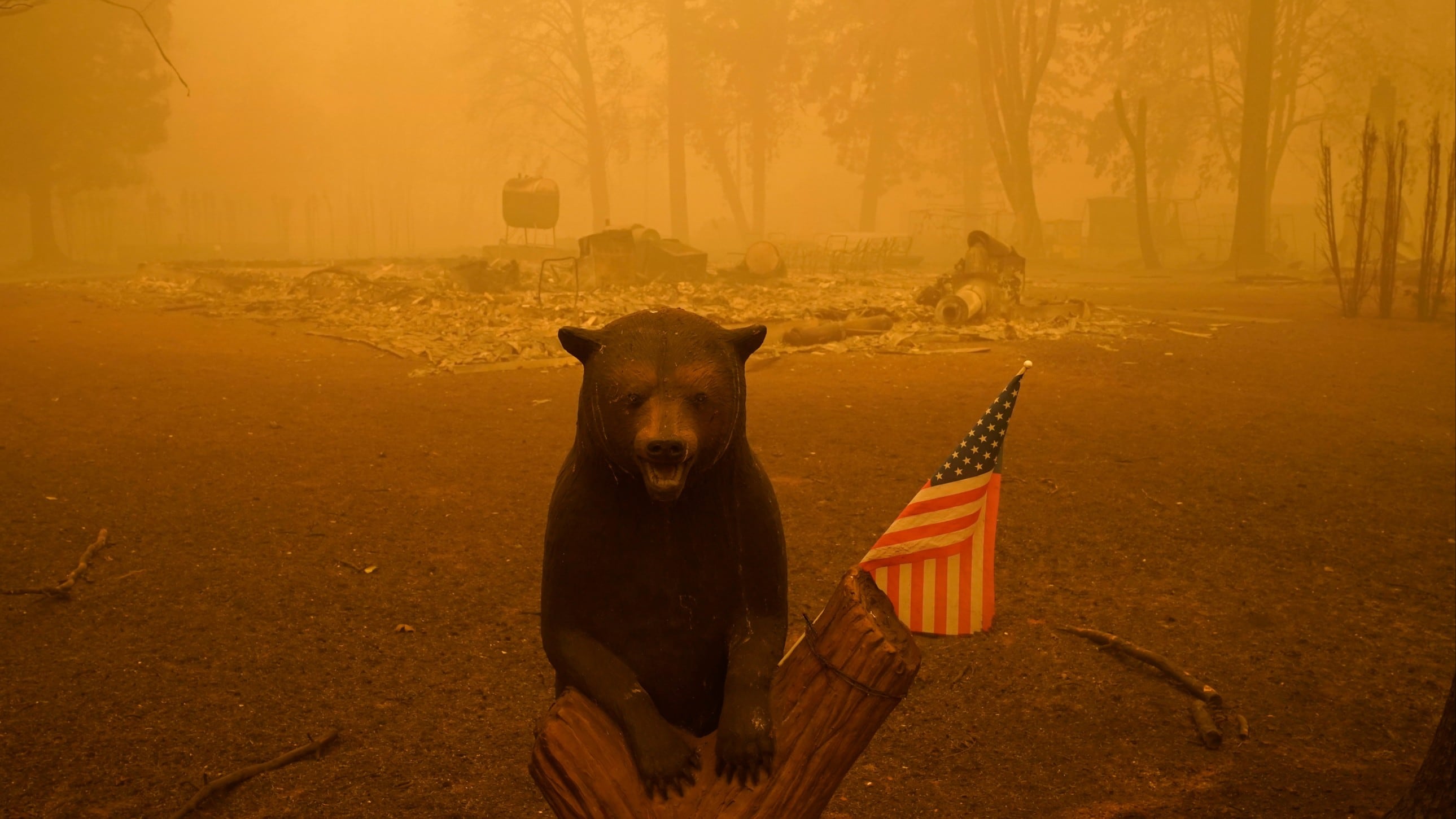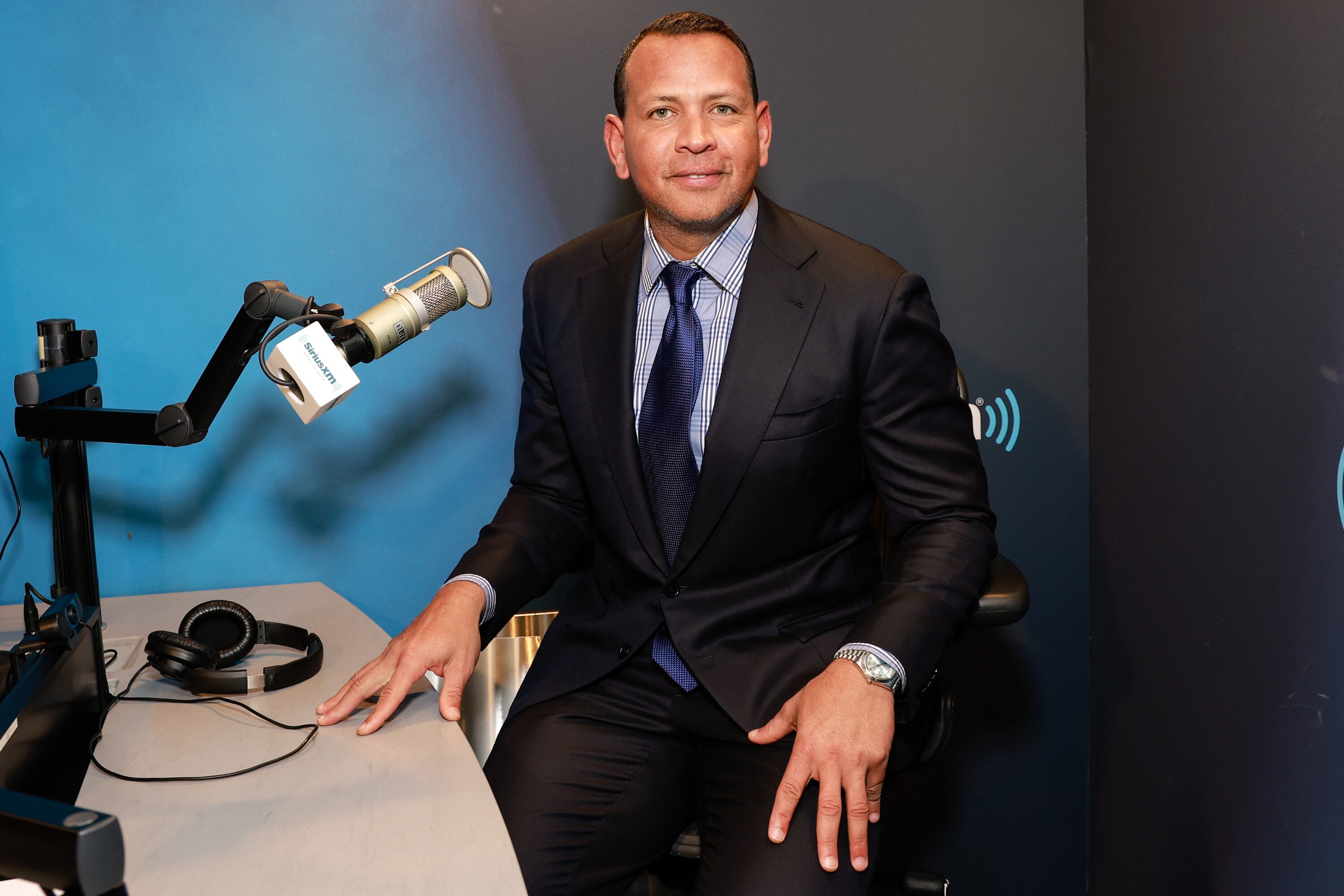The fallout from the Norfolk Southern train derailment in Ohio now includes almost 44,000 animals potentially killed due to the chemical spill and burnoff, according to the Ohio Department of Natural Resources.
The state agency estimated that more than 38,000 minnows died with 5,500 additional species of fish, amphibians, and crayfish also possibly impacted by the toxic spill. None of the dead animals listed were endangered species.
Officials first calculated that about 3,500 animals were killed following the incident.
The agency also said the threat to aquatic wildlife, in particular, was highest during the first 24 hours following the derailment and currently there is no immediate threat to water-dwelling animals.
"Because the chemicals were contained, we haven't seen any additional signs of aquatic life suffering. In fact, we have seen fish return to Leslie Run," said Mary Mertz, the director of the Ohio Department of Natural Resources, in the statement.
Earlier in February, the Environmental Protection Agency identified at least five substances that potentially could have leaked into the local ecosystem: vinyl chloride, butyl acrylate, ethylhexyl acrylate, ethylene glycol monobutyl ether, and isobutylene.
The agency tasked Norfolk Southern to come up with a viable cleanup plan. "The Norfolk Southern train derailment has upended the lives of East Palestine families, and EPA’s order will ensure the company is held accountable for jeopardizing the health and safety of this community," said EPA Administrator Michael S. Regan.
OceanGate Expeditions on Thursday said pilot and chief executive Stockton Rush, along with passengers Shahzada Dawood and his son Suleman Dawood, Hamish Harding, and Paul-Henri Nargeolet “have sadly been lost.”
A new study on loneliness is showing it may not only affect mental health, but it may also be bad for the bones. However, the study found it impacts one group in particular: men. Amid concerns about the rising epidemic of loneliness, researchers wanted to take a closer look at its effects.
Be Well: 2-Minute Morning Stretch Routine
Be Well: Celebrity Trainer Bob Harper Talks Heart Health
A new study from Finland found that "night owls," or people who tend to stay up late, don't live as long as those who go to bed early and wake up early as well.
Confidence in the scientific community declined among U.S. adults in 2022, a major survey shows, driven by a partisan divide in views of both science and medicine that emerged during the COVID-19 pandemic.
The American Cancer Society estimates that over 20,000 new cancer cases in Connecticut this year alone. But there's a concerning shortage of chemotherapy drugs in the state and across the country. News 12 reporter Mark Sudol tells us why and what can be done.
A jury in Oregon says the electric utility PacifiCorp must pay punitive damages for causing devastating wildfires in 2020 — on top of an earlier verdict already expected to amount to billions of dollars.
Pfizer is warning that an antibiotic used to treat syphilis and other bacterial infections in young people are likely to run out by the end of this quarter.
Be Well: Alex Rodriguez on the Importance of Dental Hygiene Following Gum Disease Diagnosis













